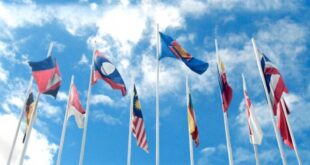It follows that in the aftermath of the Russian military intervention in Ukraine in February 2022, as the West “attempted to ‘cancel’ Russia by severing economic and cultural links” with it, Beijing’s significance as Moscow’s economic, political and strategic ally has undeniably grown. In the US and in the West, nearly in all discussions about Russia-China relations it has become mandatory to describe Russia as becoming China’s “junior partner,” “a satellite of China,” “little brother,” and even a “vassal state”; within Russia, while it is true some of these phrases do get echoed in op-ed columns, a more serious concern is regarding Moscow’s over-reliance on Beijing.
Perhaps this explains why unlike in the Chinese media which is filled with adverse reactions, and even hostile commentaries, in response to President Trump’s recent public comments regarding “attempts at creating a wedge between Moscow and Beijing,” not much has been appearing on the issue in mainstream Russian electronic and print media. Only two recent instances of the top Russian leaders making comments on the issue come to mind. First, a rare interview by Russian foreign minister Sergey Lavrov where he emphasized “Russia will never betray China”; second, days ago when Putin told visiting Chinese foreign minister in the Kremlin “cooperation between the two countries has been a great success.”
In China, on the other hand, twin phone calls between Trump and Putin – also called “Shuang Pu” or “double Pu” phone calls in the Chinese media, as both Trump and Putin have Chinese character “普” (Pǔ) in the Chinese translations of their respective names, i.e., 特朗普 (Tè lǎng pǔ ) and 普京 (Pǔjīng) – have been drawing a lot of public attention. Numerous media commentaries have been appearing since the first phone call was made between the US and Russian leaders. Distinguishing the two phone calls from one another, a commentator said “If the first call was a greeting, the second was a meeting, a good start.”
No one in Moscow is commenting on the US ‘Reverse-Nixon, Reverse-Kissinger’ Strategy
In China, it is hard to convince anyone that Moscow is unaware the aim of Trump’s China policy is to “pursue trade and other advantages within the framework of a strategy to isolate China. Equally frustrating to scholars in China is the fact that Moscow does not even pretend to be concerned about Trump’s attempting to create a wedge between China and Russia. Instead, as mentioned, what is rather intriguing is that despite high-level political alignment on the global issues between the two non-democracies and a perfect symmetry in the worldview shared by the two authoritarian leaders, there is a growing anxiety in the Kremlin over the fear of ever-rising economic dependence on Beijing.
Igor Makarov, the editor-in-chief of the Contemporary World Economy, a publication of the Higher School of Economy in Moscow, explains the anxiety as the result of the dramatic growth of trade between Russia and China, especially in the years since the war in Ukraine. “In 2021, China accounted for just 18% of Russia’s trade. By the end of 2024, that number reached 34%, with China representing 41% of imports and 30% of exports. This leap coincides with a sharp contraction in trade with the European Union, which has dropped from over half of Russia’s total trade to under 20% in just three years,” Makarov noted. In this context, the shift toward China appears not only logical but inevitable, he further added.
Earlier on in February, within a few days of the first Trump-Putin phone call, a leading Russian political analyst decoded Trump 2.0 realpolitik strategy as “breaking old alliances, forging new deals.” Interestingly, Vitaly Ryumshin, the analyst did not even mention Trump’s or the US new Russia strategy to “pull Moscow away from Beijing.” However, Ryumshin did underline for Trump China is America’s main adversary and in the Trump 2.0 administration the game-plan was to “prioritize China, abandon Europe.” Ryumshin further claimed “He [Trump] views Beijing as an existential threat, accusing it of siphoning wealth from the US through trade imbalances and expanding its influence into the Western Hemisphere, long considered America’s untouchable ‘backyard’.
China Reacts after the First Phone Call: Can Trump Drive a Wedge between China and Russia?
Remember the first Trump-Putin call was made on February 12, triggering widespread media reactions in China – both op-ed write-ups and reader’s views flooding the newspaper editor’s mailboxes. Chen Jing, a popular blogger on the widely circulated guancha.com digital news and current affairs platform, reacted angrily in a blog written within 24 hours after Trump-Putin phone call: “If Trump wants to pull in Russia to deal with China, it is meaningless, because there is not enough time [for Trump]. Intention alone is not enough, action is needed, and the relationship between Europe and Russia will be tossed for a long time.”
Reader’s views in fact are even more forthcoming and blunt. “How can Russia confront China? Russia’s Siberia and Outer Northeast territories are extremely vulnerable to China. During the Cold War, the Soviet Union could deploy millions of troops in Siberia. Does Russia have the ability to mobilize troops to confront China now?” a reader from Zhejiang province, near Shanghai, sent in his views. Another reader from Beijing wrote: “Forty years ago, Trump’s attempt to pull Russia against China might have been possible. Now, it is purely child’s play for Trump to bring it up. His main purpose is to sow discord and to put pressure on China. It is just bluffing and worthless.”
Additionally, several Chinese scholars, while upholding the official government stance that China is happy to see Russia and relevant parties make positive efforts to defuse the Ukraine crisis, have openly been voicing skepticism that the phone call diplomacy will yield substantive results. Recalling an old Chinese saying that what you can’t gain at the battlefield, you can’t gain at the negotiating table, Yang Jin, a researcher with the Institute of Russian, Eastern European and Central Asian Studies at the Chinese Academy of Social Sciences (CASS) observed: Russia will not stop insisting on its stance on territorial claims. “Russia’s latest progress in the Kursk region is likely to up the ante for the country during negotiations,” Yang further added.
Beijing’s Rising Concerns Following Phone Call 2.0
Following two phone calls and high-level official bilateral talks between the two countries in Riyadh, more and more media commentaries have been appearing in China. What initially appeared to be a mere “phone diplomacy” to the observers in China, now started gaining traction as a serious strategic issue of high concern. One IR expert wrote: “The main question is whether Russia will seriously fall for the US’ strategy of sowing discord?” Beijing-based left-leaning scholar Hu Maoren recently cited Putin’s remarks given a fortnight ago and said, it is impossible that Russia will “blindly trust Western partners again.”
At another level, some Chinese scholars view the two phone calls and continued highest-level efforts between the US and Russia aimed at not just ending the war in Ukraine and forging Russia-Ukraine peace. To these Chinese scholars, the subtext of peace efforts is a larger focus, i.e., the US-Russia cooperation in managing the world together. “The Russia-Ukraine war is a current issue, and the Russia-Ukraine peace is a pressing issue. The subtext of the US-Russia talks is to restore normal relations between the two nations and work closely together,” wrote Chen Zenming after the second Trump-Putin phone call.
To sum up, dismissing the Chinese fear of Russia falling to the US new “reverse-Nixon” strategy, critics in Europe with a close watch on the public discourse in China say the US allying with Russia to fight China is a dead end. A recent commentary published by a Munich-based newspaper says the US president wanting to isolate China by currying favour with Russia is a wishful dream. “The only result of insisting on being a reverse-Kissinger can be: Washington’s credibility will decline, NATO will be shaky, and the biggest beneficiary will be China,” it said.
 Geostrategic Media Political Commentary, Analysis, Security, Defense
Geostrategic Media Political Commentary, Analysis, Security, Defense





